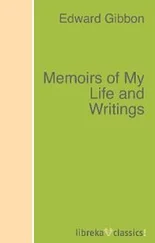Henry Fuseli - The Life and Writings of Henry Fuseli, Volume 2 (of 3)
Здесь есть возможность читать онлайн «Henry Fuseli - The Life and Writings of Henry Fuseli, Volume 2 (of 3)» — ознакомительный отрывок электронной книги совершенно бесплатно, а после прочтения отрывка купить полную версию. В некоторых случаях можно слушать аудио, скачать через торрент в формате fb2 и присутствует краткое содержание. Жанр: visual_arts, foreign_antique, foreign_prose, на английском языке. Описание произведения, (предисловие) а так же отзывы посетителей доступны на портале библиотеки ЛибКат.
- Название:The Life and Writings of Henry Fuseli, Volume 2 (of 3)
- Автор:
- Жанр:
- Год:неизвестен
- ISBN:нет данных
- Рейтинг книги:5 / 5. Голосов: 1
-
Избранное:Добавить в избранное
- Отзывы:
-
Ваша оценка:
- 100
- 1
- 2
- 3
- 4
- 5
The Life and Writings of Henry Fuseli, Volume 2 (of 3): краткое содержание, описание и аннотация
Предлагаем к чтению аннотацию, описание, краткое содержание или предисловие (зависит от того, что написал сам автор книги «The Life and Writings of Henry Fuseli, Volume 2 (of 3)»). Если вы не нашли необходимую информацию о книге — напишите в комментариях, мы постараемся отыскать её.
The Life and Writings of Henry Fuseli, Volume 2 (of 3) — читать онлайн ознакомительный отрывок
Ниже представлен текст книги, разбитый по страницам. Система сохранения места последней прочитанной страницы, позволяет с удобством читать онлайн бесплатно книгу «The Life and Writings of Henry Fuseli, Volume 2 (of 3)», без необходимости каждый раз заново искать на чём Вы остановились. Поставьте закладку, и сможете в любой момент перейти на страницу, на которой закончили чтение.
Интервал:
Закладка:
Such were the principles on which Apelles formed his Venus, or rather the personification of Female Grace, the wonder of art, the despair of artists: whose outline baffled every attempt at emendation, whilst imitation shrunk from the purity, the force, the brilliancy, the evanescent gradations of her tints. 22 22 Apelles was probably the inventor of what artists call glazing . See Reynolds on Du Fresnoy, note 37. vol. iii.
The refinements of the art were by Aristides of Thebes applied to the mind. The passions which tradition had organized for Timanthes, Aristides caught as they rose from the breast or escaped from the lips of Nature herself; his volume was man, his scene society: he drew the subtle discriminations of mind in every stage of life, the whispers, the simple cry of passion and its most complex accents. Such, as history informs us, was the suppliant whose voice you seemed to hear, such his sick man's half-extinguished eye and labouring breast, such Byblis expiring in the pangs of love, and above all, the half-slain mother shuddering lest the eager babe should suck the blood from her palsied nipple. This picture was probably at Thebes when Alexander sacked that town; what his feelings were when he saw it, we may guess from his sending it to Pella. Its expression, poised between the anguish of maternal affection and the pangs of death, gives to commiseration an image, which neither the infant piteously caressing his slain mother in the group of Epigonus, 23 23 In matri interfectæ infante miserabiliter blandiente. Plin. l. xxxiv. c. 9.
nor the absorbed feature of the Niobe, nor the struggle of the Laocoon, excites. Timanthes had marked the limits that discriminate terror from the excess of horror; Aristides drew the line that separates it from disgust. His subject is one of those that touch the ambiguous line of a squeamish sense. – Taste and smell, as sources of tragic emotion, and in consequence of their power, commanding gesture, seem scarcely admissible in art or on the theatre, because their extremes are nearer allied to disgust, and loathsome or risible ideas, than to terror. The prophetic trance of Cassandra, who scents the prepared murder of Agamemnon at the threshold of the ominous hall; the desperate moan of Macbeth's queen on seeing the visionary spot still uneffaced infect her hand, – are images snatched from the lap of terror, – but soon would cease to be so, were the artist or the actress to inforce the dreadful hint with indiscreet expression or gesture. This, completely understood by Aristides, was as completely missed by his imitators, Raphael 24 24 A design of Raphael, representing the lues of the Trojans in Creta, known by the print of Marc Antonio Raymondi.
in the Morbetto , and Poussin in his plague of the Philistines. In the group of Aristides, our sympathy is immediately interested by the mother, still alive, though mortally wounded, helpless, beautiful, and forgetting herself in the anguish for her child, whose situation still suffers hope to mingle with our fears; he is only approaching the nipple of the mother. In the group of Raphael, the mother dead of the plague, herself an object of apathy, becomes one of disgust, by the action of the man, who bending over her, at his utmost reach of arm, with one hand removes the child from the breast, whilst the other, applied to his nostrils, bars the effluvia of death. Our feelings alienated from the mother, come too late even for the child, who, by his languor, already betrays the mortal symptoms of the poison he imbibed at the parent corpse. It is curious to observe the permutation of ideas which takes place, as imitation is removed from the sources of nature: Poussin, not content with adopting the group of Raphael, once more repeats the loathsome attitude in the same scene; he forgot, in his eagerness to render the idea of contagion still more intuitive, that he was averting our feelings with ideas of disgust.
The refinements of expression were carried still farther by the disciple of Aristides, Euphranor the Isthmian, who excelled equally as painter and statuary, if we may form our judgment from the Theseus he opposed to that of Parrhasius, and the bronze figure of Alexander Paris, in whom, says Pliny, 25 25 Reynolds' Disc. V. vol. i. p. 120. Euphranoris Alexander Paris est: in quo laudatur quod omnia simul intelligantur, judex dearum, amator Helenæ, et tamen Achillis interfector. Plin. l. xxxiv. 8.
the umpire of the goddesses, the lover of Helen, and yet the murder of Achilles might be traced. This account, which is evidently a quotation of Pliny's, and not the assumed verdict of a connoisseur, has been translated with an emphasis it does not admit of, to prove that an attempt to express different qualities or passions at once in the same object, must naturally tend to obliterate the effect of each. 'Pliny,' says our critic, 'observes, that in a statue of Paris by Euphranor, you might discover at the same time three different characters: the dignity of a judge of the goddesses, the lover of Helen, and the conqueror of Achilles. A statue in which you endeavour to unite stately dignity, youthful elegance, and stern valour, must surely possess none of these to any eminent degree.' The paraphrase, it is first to be observed, lends itself the mixtures to Pliny it disapproves of; we look in vain for the coalition of 'stately dignity, stern valour, and youthful elegance,' in the Paris he describes: the murderer of Achilles was not his conqueror. But may not dignity, elegance, and valour, or any other not irreconcilable qualities, be visible at once in a figure without destroying the primary feature of its character, or impairing its expression? Let us appeal to the Apollo. Is he not a figure of character and expression, and does he not possess all three in a supreme degree? Will it imply mediocrity of conception or confusion of character, if we were to say that his countenance, attitude, and form combines divine majesty, enchanting grace, and lofty indignation? Yet not all three, one ideal whole irradiated the mind of the artist who conceived the divine semblance. He gave, no doubt, the preference of expression to the action in which the god is engaged, or rather, from the accomplishment of which he recedes with lofty and contemptuous ease. – This was the first impression which he meant to make upon us: but what contemplation stops here? what hinders us when we consider the beauty of these features, the harmony of these forms, to find in them the abstract of all his other qualities, to roam over the whole history of his atchievements? we see him enter the celestial synod, and all the gods rise at his august appearance; 26 26 See the Hymn (ascribed to Homer) on Apollo.
we see him sweep the plain after Daphne; precede Hector with the ægis and disperse the Greeks; strike Patroclus with his palm and decide his destiny. – And is the figure frigid because its great idea is inexhaustible? might we not say the same of the infant Hercules of Zeuxis or of Reynolds? Did not the idea of the man inspire the hand that framed the mighty child? his magnitude, his crushing grasp, his energy of will, are only the germ, the prelude of the power that rid the earth of monsters, and which our mind pursues. Such was no doubt the Paris of Euphranor: he made his character so pregnant, that those who knew his history might trace in it the origin of all his future feats, though first impressed by the expression allotted to the predominant quality and moment. The acute inspector, the elegant umpire of female form receiving the contested pledge with a dignified pause, or with enamoured eagerness presenting it to the arbitress of his destiny, was probably the predominant idea of the figure; whilst the deserter of Oenone, the seducer of Helen, the subtle archer, that future murderer of Achilles, lurked under the insidious eyebrow, and in the penetrating glance of beauty's chosen minion. Such appeared to me the character and expression of the sitting Paris in the voluptuous Phrygian dress, formerly in the cortile of the palace Altheims, at Rome. A figure nearly colossal, which many of you may remember, and a faint idea of whom may be gathered from the print among those in the collection published of the Museum Clementinum. A work, in my opinion, of the highest style and worthy of Euphranor, though I shall not venture to call it a repetition in marble of his bronze.
Интервал:
Закладка:
Похожие книги на «The Life and Writings of Henry Fuseli, Volume 2 (of 3)»
Представляем Вашему вниманию похожие книги на «The Life and Writings of Henry Fuseli, Volume 2 (of 3)» списком для выбора. Мы отобрали схожую по названию и смыслу литературу в надежде предоставить читателям больше вариантов отыскать новые, интересные, ещё непрочитанные произведения.
Обсуждение, отзывы о книге «The Life and Writings of Henry Fuseli, Volume 2 (of 3)» и просто собственные мнения читателей. Оставьте ваши комментарии, напишите, что Вы думаете о произведении, его смысле или главных героях. Укажите что конкретно понравилось, а что нет, и почему Вы так считаете.












